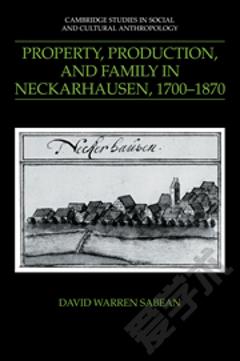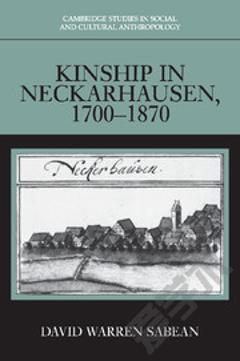Property, Production, and Family in Neckarhausen, 1700–1870
This landmark study of family relations in a village in southern Germany is the product of deep reflection on anthropological approaches to historical problems. David Sabean is concerned to recover the tenor of marital relationships within a particular context of production and surplus extraction; he is concerned equally with capturing the logic of gender and generational conflict within strategies of subsistence and survival, the fabric of rights and obligations, and the coherence of life trajectories. Sabean's analysis of Neckarhausen is a challenge to conventional notions about modernization and family and kinship. As population increased and an influx of captial brought about a reorganization of agricultural production, for managing the forces of social reproduction. Peasants, it turns out, were innovative and flexible, experimenting with new commodity markets. The 'green revolution' at the dawn of the modern era is shown to have had a tremendous impact on the utilization of labor. Intensification of agriculture completely reorganized women's schedules, bringing about a new labor discipline and a crisis in marital relationships. Arguing for the concept of 'property' as a fundamental tool for social analysis, Sabean examines the peculiarities of property devolution, the distribution of tools, and the sale of land. His book is a stunning example of history written from the perspective of 'everyday life'.
{{comment.content}}








 京公网安备 11010802027623号
京公网安备 11010802027623号